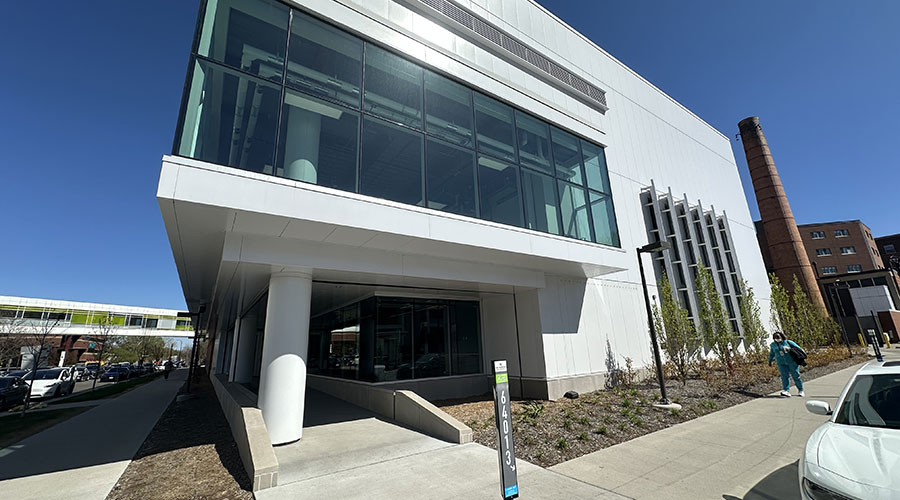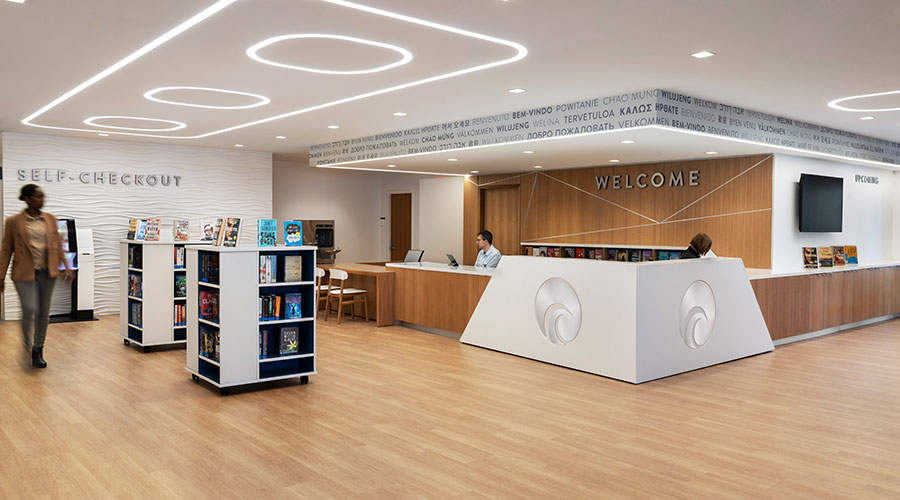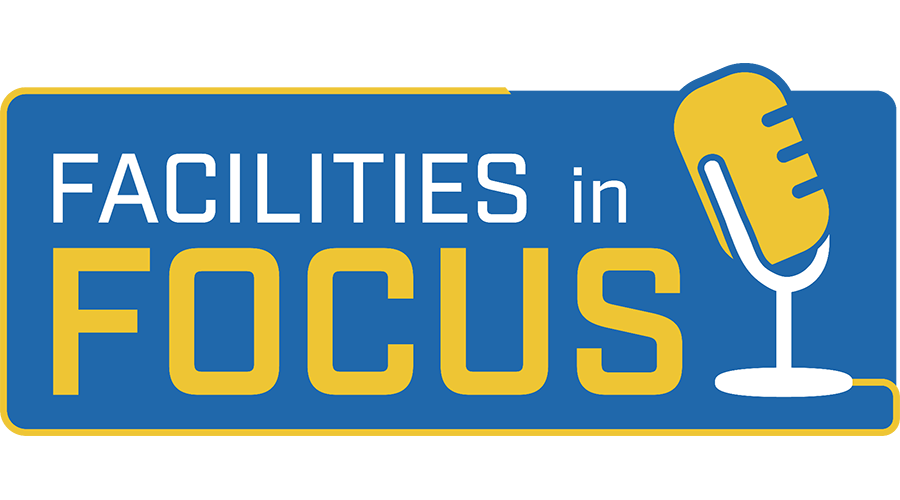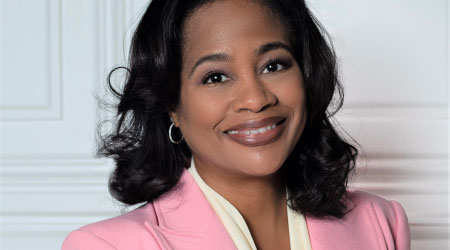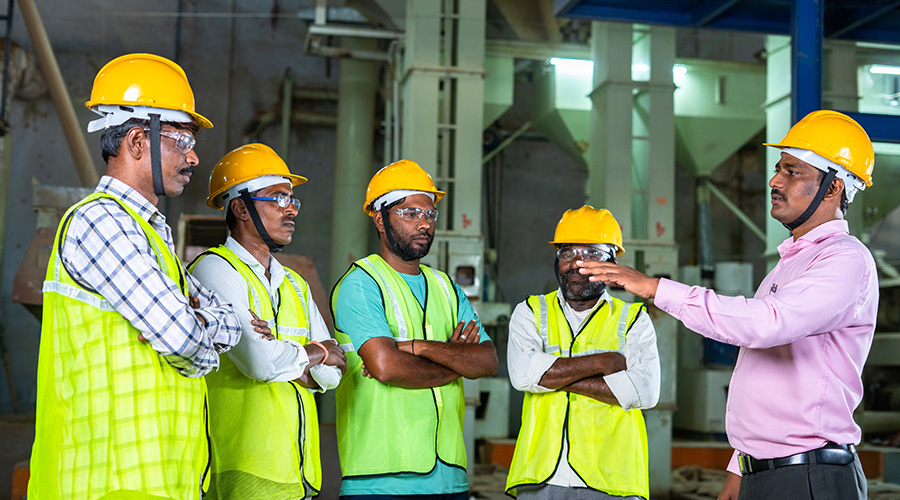 Photo by Jim Prisching
Photo by Jim PrischingAt Universities, Changing Learning Means Changing Space Needs
Northwestern University is responding to how space needs are changing as a result of shifting learning and teaching methods.
In the old days, students would pile into a lecture hall, stare blankly at a lecturer for an hour, and then lug their pile of heavy textbooks to a stuffy library for an overnighter at a single carrel. This scenario is rarely the case anymore. As at many colleges and universities across the country, Northwestern University is responding to how changing methods of teaching and learning mean adapting space to those new needs.
“How you transfer knowledge has changed,” says John D’Angelo, Northwestern’s vice president of facilities management. “I had a professor in college whose face I never saw — he wrote on the board with his back to us.” While surely a few hold-outs to the old style remain, D’Angelo himself is proof the old methods are dying away. He teaches an online class in facilities management, something he immensely enjoys. “It energizes me,” he says. And it would’ve been quite literally impossible when he was in school.
These days, smaller classes, small group study sessions, and even nearly bookless libraries are the order of the day. At Northwestern, during a recent renovation to the University Library, D’Angelo created more collaborative and small-group study space. Books were digitized and removed to off-campus storage (where they can be easily retrieved if requested) and the space was “thoughtfully repurposed into study spaces.” Also, to coincide with D’Angelo’s goal of inclusivity, much of the furniture in the new space is lower to allow wheelchair-bound students to sit shoulder-to-shoulder with their peers without doing anything special. As well, the furniture is movable to accommodate groups of different sizes.
Experiential learning has also become essential to the college experience. Northwestern has created a fund for students to bring entrepreneurial ideas to life. D’Angelo explains a recent success story of this program: A group of engineering students who competed for the first time in the Solar Decathlon, a competition that challenges students to design and build a solar-powered house. The team took home three first prizes for their design.
Using Northwestern’s own buildings as teaching tools is important as well — mechanical engineering students frequently spend time in the university’s massive central plant and other mechanical spaces, says D’Angelo. Dashboards throughout the university also teach about solar power, and display the amount of power being generated in real-time.
“There used to be lots of potential left on the table, as classes were very structured,” says D’Angelo. “Today, we’re looking at the entire time a student spends at a university as a multi-disciplinarian learning opportunity. We recognize that potential learning opportunities for students go well beyond the classroom. Students recognize this too and demand those experiences that come with 360-degree learning opportunities.”
Related Topics:






